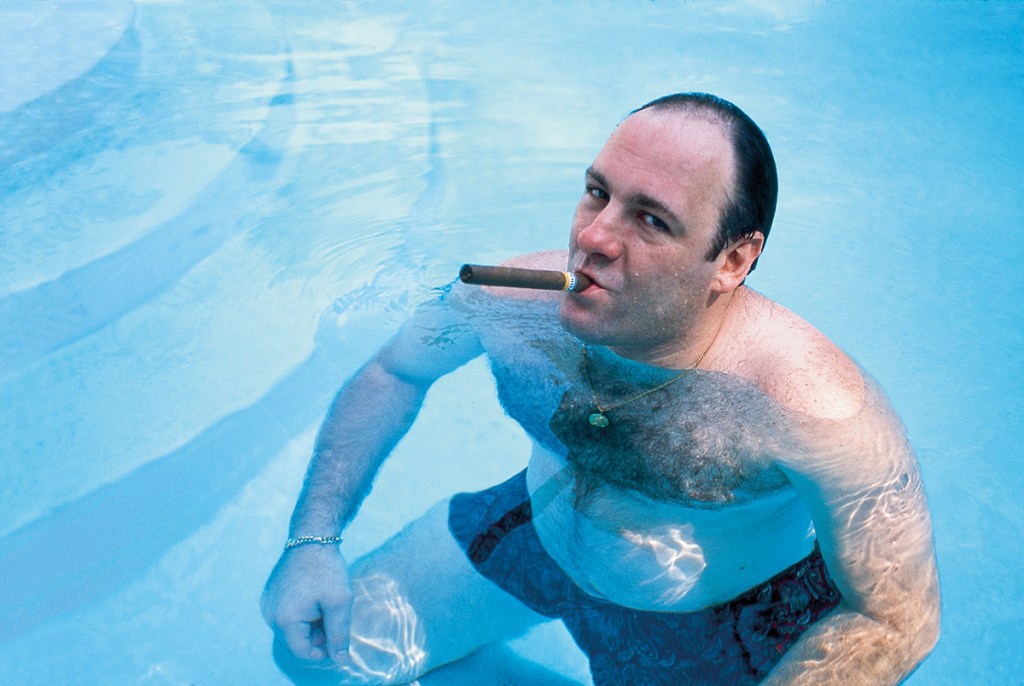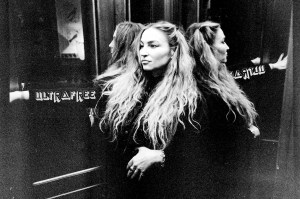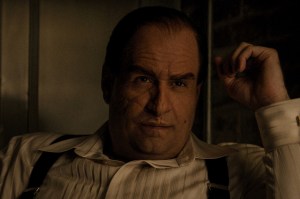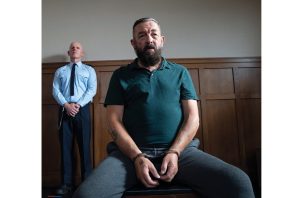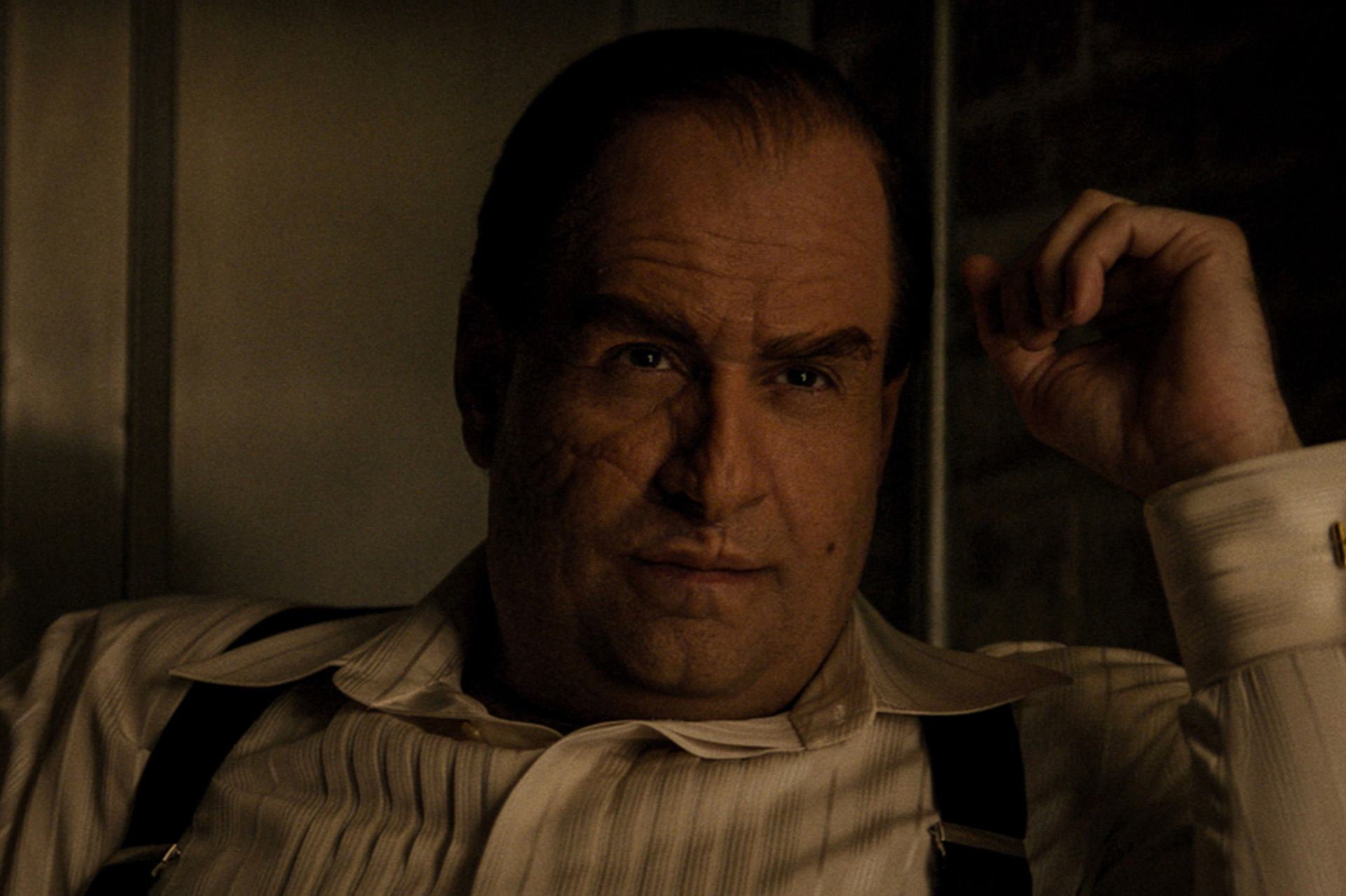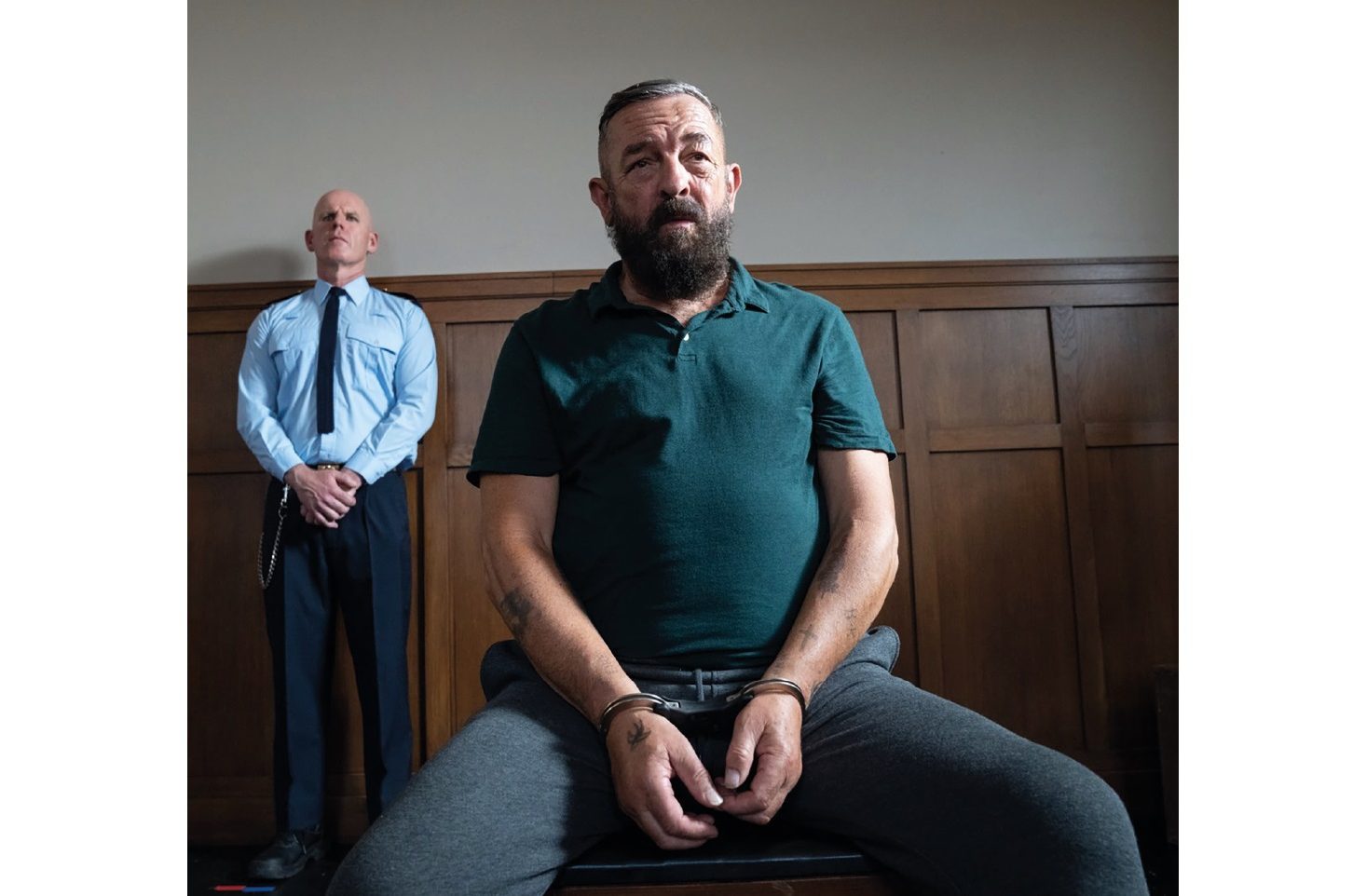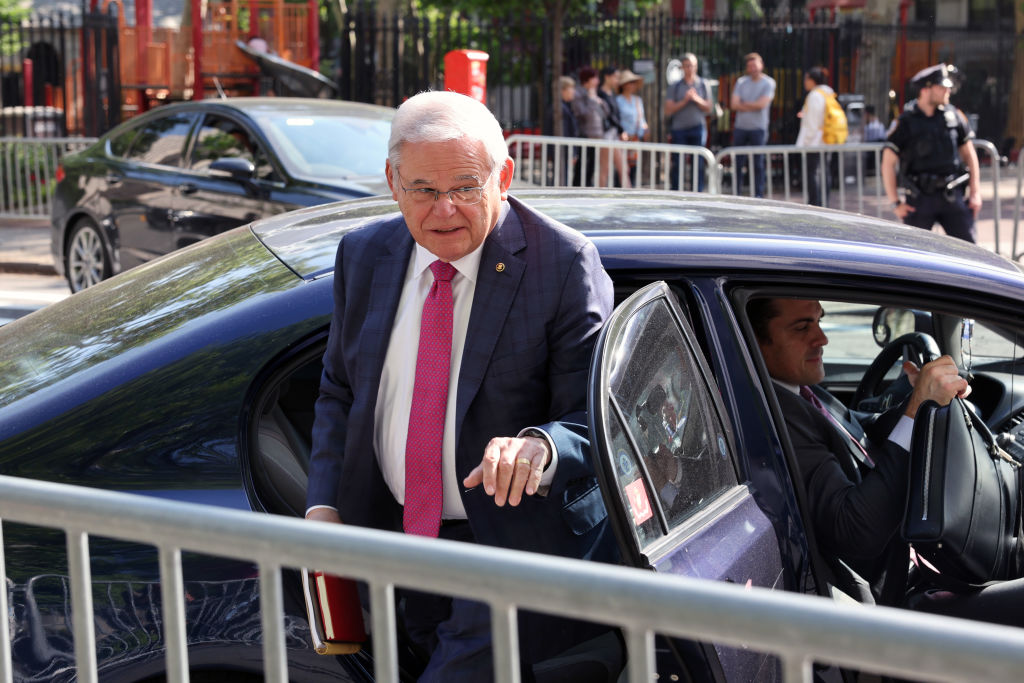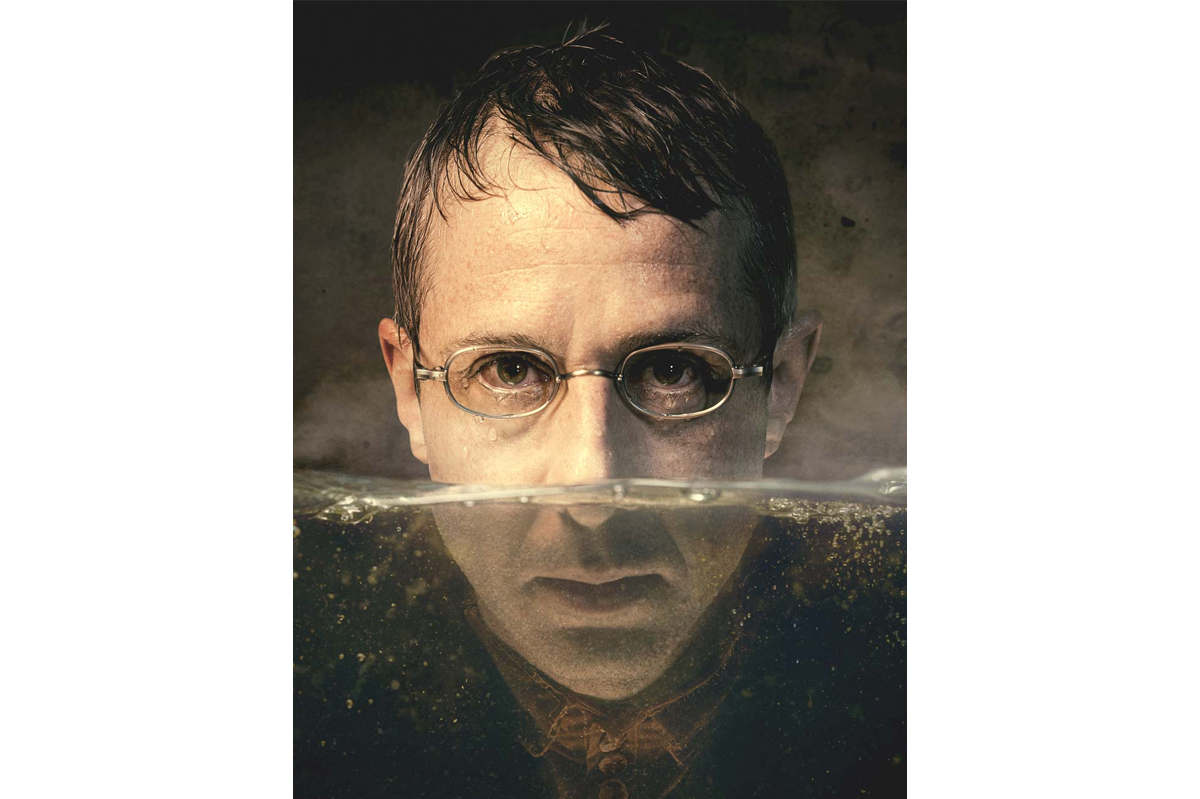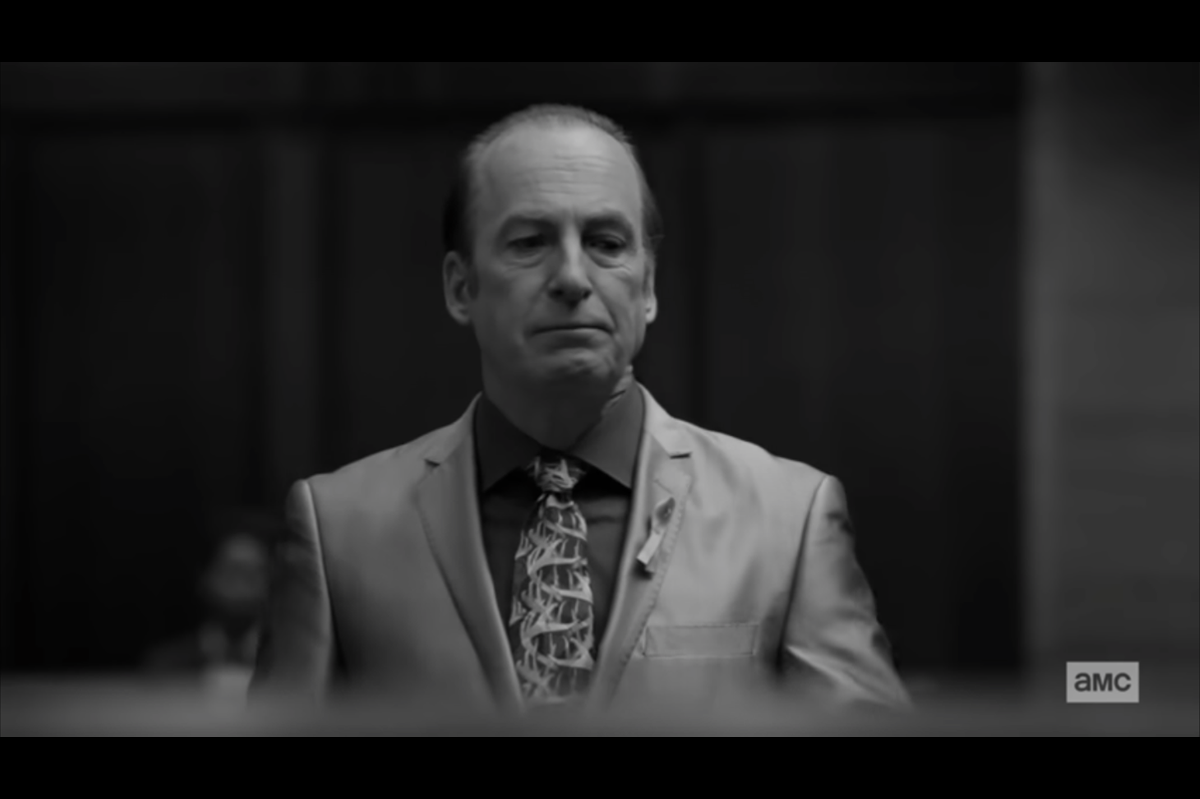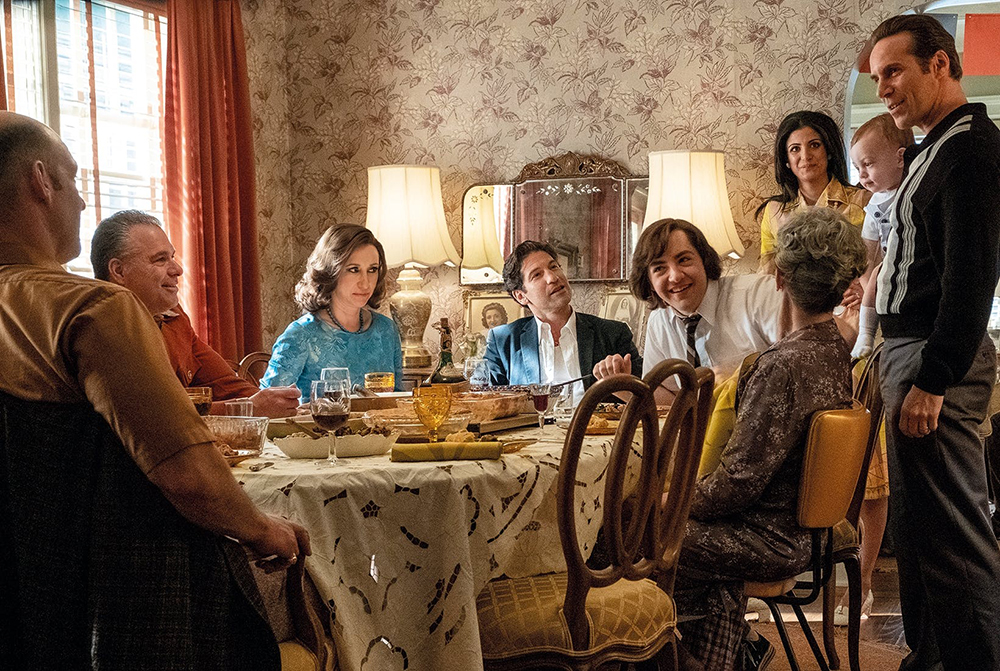The Sopranos is called the greatest television show in history. It is the tale of Anthony ‘Tony’ Soprano, a middle-aged man in psychotherapy who also happens to run a New Jersey crime family. Anthony means ‘priceless’; the choice of name is surely deliberate. The Sopranos is complex — all masterpieces are — but it is fundamentally about greed: for money; for sex (the crew inhabit the Bada Bing! lap-dancing club, where breasts are landscape); for alcohol; for power; for the base drug of food.
In the first episode Tony, who is played by James Gandolfini as a human devil, all need and charm (he is defiantly sexy with his fat hands and dachshund’s eyes), is almost human-looking. By the end, he is immense. He lumbers and breathes like an animal; a man returned to his original state. Food and death are very close in The Sopranos. The crew meet at Satriale’s Pork Store, where they buy food and dismember corpses. I went to Satriale’s on a Sopranos bus tour hosted by an actor whose character burnt to death in a restaurant fire. Then, in a judicious metaphor, a rainstorm came, and the bus was forced back to Manhattan. I deserved it; I was greedy.
Gandolfini was a jobbing actor when he was cast. The show’s writer and producer David Chase, a man with a cold and brilliant eye, chose him after a casting agent saw Gandolfini throw Patricia Arquette through a glass door in True Romance. ‘Stick it in me, baby, go on, stick it in Daddy,’ he tells her as she offers up a corkscrew to his gun. Gandolfini died of a heart attack in a hotel room in Rome in 2013 at 51, devoured by some of the same imperatives as his creation Tony Soprano. Chase was wise to cast him. He chose Gandolfini, he said later, for his ‘quality of sadness’. He was, he said, ‘the lost, hurt little boy’: ‘He was a very angry guy and so was I. It always seemed bizarre to me that we met under these circumstances and created this even angrier guy.’
Now, with appalling cynicism or creative genius, depending on your perspective, Chase has cast Gandolfini’s son Michael as the young Tony Soprano in a prequel called The Many Saints of Newark. It is the story of the creation of Tony Soprano, set in 1967. It was Michael Gandolfini who found James on the hotel floor in Rome; he was 14 at the time. Now he is grown-up, he will play his father for David Chase.
Will he match him? James Gandolfini’s performance as Tony is a masterpiece because you can imagine what he would do in any situation. You see him by the fridge, or in a murder room, thinking that he’s in love. (Of course he can’t love. It is performative; a mirroring of what he sees elsewhere, probably on television.)
The original conceit is this: Tony is in therapy for panic attacks because he blacks out constantly. So, tricked into therapy, he is, at least partially, self-aware, or rather his subconscious is. Tony’s subconscious and the viewer watch together; we collude and are corrupted. Tony sits in a pale consulting room with the psychologist Dr Jennifer Melfi (Lorraine Bracco), a mother confessor who cannot resist the pleadings of her child. Tony has a second good mother in his wife Carmela (Edie Falco), who is both covetous and asleep (her manicured hands clutch purses full of money), and a bad mother too: Livia Soprano, who Chase says he based on his own mother. Livia is a killer like her Roman empress namesake (according to Robert Graves’s description in I, Claudius) and she tries at one point to concoct Tony’s murder. Not even the empress went that far but what could be more humanizing in a killer than a mother who wants to destroy him? In The Sopranos, the devil is your friend, a man you know intimately. He is the showrunner, and he is you.
The Sopranos is not an isolated piece of art. It reaches back to Graves’s Imperial Rome, lands on Francis Ford Coppola’s The Godfather trilogy and pivots to Martin Scorsese’s Goodfellas. The gangster genre is the most compelling in American film because it is truthful, the twin to American self-delusion and false decency. It doesn’t lie about savagery or greed. And so, Chase borrows deliberately and explicitly. He cast 27 actors who appeared in Goodfellas, including Michael Imperioli, who played Spider, the luckless boy shot in the foot by Tommy (Joe Pesci). In The Sopranos, as Christopher, a corrupted innocent (of which there are too many to count), Imperioli shoots a man in the foot, then bleakly says: ‘It happens.’ Those to whom evil is done, do evil in return. Tony’s Uncle Junior, another vicious sentimentalist, is played by Dominic Chianese, who was Johnny Ola in the second Godfather film. The Bada Bing! lap-dancing club is named for Sonny Corleone’s description of how to commit a murder, which he delivers to his brother Michael in The Godfather. ‘Nice college boy, eh?’ Sonny asks. ‘Didn’t want to get mixed up in the family business? Now you want to gun down a police captain because he slapped you in the face a little bit? What do you think this is, the army where you shoot them a mile away? You got to get up close like this [he points an invisible gun at Michael’s head] and Bada Bing! You blow their brains all over your nice Ivy League suit.’
Chase did something extraordinary in The Sopranos. He did what Jean Rhys did to Jane Eyre with her prequel novel Wide Sargasso Sea, which is really an extended piece of criticism in the form of a memoir by the first Mrs Rochester: he managed to make the original source material look naive. If you watch The Godfather trilogy after The Sopranos, even as you marvel — it is more Graves’s Rome than Chase’s New Jersey — you know that gangsters are not like that. How could they be? There is nothing human about Don Corleone and his son Michael; they perform from behind glass. What is this power for? They act like priests with money; they do not even like sex. Goodfellas, meanwhile, is too flaked with cocaine — it falls like snow — to be comprehensive. But The Sopranos tells us everything; everything but the end. We do not know what happens to Tony. Chase’s final moral point is surely: we shouldn’t care.
But now we have The Many Saints of Newark, and I marvel again at the cynicism of Chase inviting Michael Gandolfini to inhabit his father’s creation, no matter the moral risk. For a skilled film-maker metaphor is everything, though I wonder what James, who was apparently a kind man, would say. It doesn’t matter. Michael Gandolfini already knows what Michael Corleone in The Godfather learnt only later: it’s a family business. At one point in The Sopranos Tony’s consigliere Silvio quotes Michael Corleone’s self-deceiving and self-piteous cry, to the laughter of his crew because in The Sopranos, as in life, there is laughter everywhere: ‘Just when I thought I was out; they pull me back in.’
The Many Saints of Newark is in cinemas from October 1. This article was originally published in The Spectator’s UK magazine. Subscribe to the World edition here.



